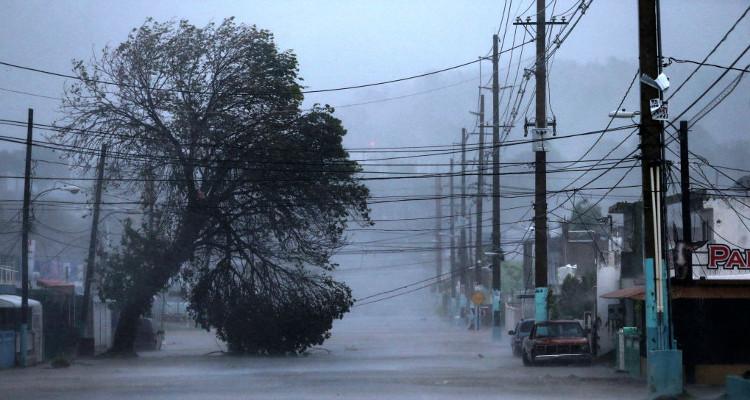At the moment, Puerto Rico is drowning in a $120 billion in debt. 51 people have died due to Hurricane Maria’s Sept. 20 devastation across the territory, which left infrastructure, accessible water and electricity in a dismal state. The United States has the necessary resources to help Puerto Rico. Puerto Rico has already met all of the qualifications of becoming a state, as a result, President Donald J. Trump should reconsider his policy decision against Puerto Rican statehood and Congress should vote to make Puerto Rico a state.
Puerto Rico is an island in the Caribbean Sea. Its affiliation with the United States began during the 1898 Spanish-American War. At the time, Puerto Rican residents were attacking Spanish businesses in the territory and American General Nelson Miles promised to preserve the liberties and interests of Puerto Ricans.
Even after the United States received Puerto Rico as a territory through the Treaty of Paris, the U.S. took advantage of Puerto Rico’s agricultural abilities to produce sugar and lucrative coffee goods. In 1901, legal opinions known as the Insular Cases further argued that Puerto Ricans were foreigners who did not understand “Anglo-Saxon principles.” Thus, they should not be incorporated in the United States.
The sentiments expressed in the Insular Cases are unequivocally antiquated and racist, and it is of the utmost importance that the United States compensate for past racism by taking on Puerto Rico as a state and helping them–especially in their time of need.
After all, Puerto Rico is currently in a debt crisis because of American bondholders. The Puerto Rican government issued bonds—or payments that have interest and are used to repay debts–with very favorable taxes attached, bondholders sought out too many funds, and soon, Puerto Rico began issuing borrowed funds as bonds.
The de cit has continued to widen, taking a deep toll on the economy and Puerto Rico’s ability to ameliorate itself. U.S. bondholders caused this crisis, and the U.S. should take responsibility for it and grant Puerto Rico statehood—especially when it is what 97 percent of Puerto Rican voters want, according to a June 11 poll. As a state, Puerto Rico would have access to international markets, which would allow Puerto Rico to stimulate its own economy and solve its own debt crisis.
If Puerto Rico were granted statehood, they would also have increased access to federal funds and federal responses to national crises like hurricanes. The United States has already recognized Puerto Rico’s inability to help itself after the hurricane, so the House of Representatives approved a $36.5 billion disaster aid package in order to aid those in Texas, Florida, Puerto Rico and the U.S. Virgin Islands from numerous hurricanes. Because it is a part of the U.S., Puerto Rico does have access to the Federal Emergency Management Agency.
But, this is not enough. Trump limited the usual matching-fund requirement of 25 percent. His only explanation was through press spokeswoman Sarah Huckabee Sanders. She said that Homeland Security needed more time to assess what the true needs were within Puerto Rico. And yet, 80 percent of the island’s transmission lines are dysfunctional, and 100 percent of power lines were not working immediately after the hurricane.
There have been five referenda on the topic already within Congress–the first being in Nov. 2012. The most recent referendum was held on June 11, and 97% agreed that Puerto Rico should receive statehood. So, Congress should take on what the people want them to.
The United States has a responsibility and an opportunity to recognize Puerto Rico’s current crisis and rewrite the racist policies and opinions that were outlined in the Insular cases. President Trump should alter his current stance against bailing out Puerto Rico and granting Puerto Rican statehood. After all, even the United States would bene t from this. Congress should vote to make Puerto Rico the country’s 51st state.





J. Diaz | Oct 29, 2017 at 6:28 pm
There’s more that one way to skin a cat. Statehood is not the only answer to fix Puerto Rico’s problems. The Commonwealth status is the political relationship with the U.S. that developed Puerto Rico since its beginnings in 1952. Unfortunately, this autonomous status has not been revised, upgraded or renegotiated since then — 65 years since its inception — and now we see the results of a neglected and decrepit status. On five consecutive referenda, the people of Puerto Rico have demanded on the ballot box that the current Commonwealth status is revised, upgraded and renegotiated, not tossed away and replaced for Statehood, a status that implies full assimilation and loss of identity. Would Washington ever respect the democratic will of its citizens? Advocating for Statehood like the author of this article does, is nothing short of advocating for shoving Statehood down the throats of a 56% majority that DOES NOT WANT IT.